Table of Contents
I’ve been asked by Nootropics Expert® readers to write about a “Leaky Blood-Brain Barrier”. And the question naturally is what nootropics to use if you suspect you have a leaky brain. You’ll find the answers in this post.
Most of us are aware of “leaky gut” syndrome. It’s long been associated with Celiac disease and Crohn’s disease.
And increased interest in gluten sensitivity has led to food labels featuring ‘gluten free’ and gluten-free products in nearly every category of food you can think of in our supermarkets.[i]
This is a bigger deal than what most people think. The National Institute of Health reports that close to 20% of Americans suffer from a diagnosable mental disorder.[ii]
And serious mental illness causes $193.2 billion in lost earnings each year.
The same report says that depression and anxiety disorders cost the global economy $1 trillion in lost productivity each year. And depression is the leading cause of disability worldwide.
The thing is even if you can name the “diagnosable” mental health disorder, doctors often don’t know the cause.
So you end up with a prescription for some med that doesn’t work. Or it does work but the side effects are horrendous.
Turns out the cause may be a ‘leaky blood-brain barrier’. And if you have a leaky gut, chances are high that you’re dealing with a leaking brain too.
In this post you’ll find natural options for healing a leaky brain.
What is the Blood-Brain Barrier?
Your brain is protected by a 7 mm thick skull. And is surrounded by cerebrospinal fluid along with a protective membrane called the meninges. This is your primary defense against physical injury like a whack on the head.
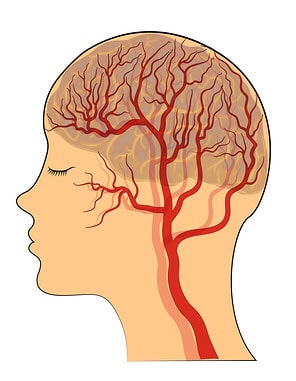 Your next layer of brain defense is your blood-brain barrier. This is a barrier between your brain’s blood vessels (capillaries) and brain cells and other tissues that make up your brain.
Your next layer of brain defense is your blood-brain barrier. This is a barrier between your brain’s blood vessels (capillaries) and brain cells and other tissues that make up your brain.
Its purpose is to tightly regulate the movement of ions, neurotransmitters, and other molecules between your general blood supply and your brain.
This precise control of your brain transports oxygen and nutrients to brain tissues while removing carbon dioxide and other waste.
It also promotes normal hormone and neurotransmitter signaling. And maintains control of the interaction between your brain and the rest of your body.
This allows optimal brain function while protecting your brain tissues from toxins, pathogens and other nasty stuff circulating in your general blood supply.
The Mechanics of your Blood-Brain Barrier
Endothelial cells line the interior of all your blood vessels. But in your brain, the Endothelial cells lining the inside of capillaries are held tightly and sealed together by ‘tight junctions’.[iii]
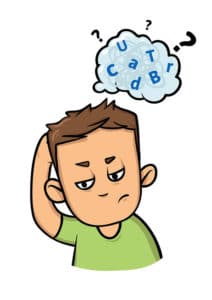 Tight junctions are made up of a network of claudins and cytoplasmic proteins, such as zonula occludens (ZO), and cingulin.[iv]
Tight junctions are made up of a network of claudins and cytoplasmic proteins, such as zonula occludens (ZO), and cingulin.[iv]
But your blood-brain barrier is not just surrounding and encasing your brain in a protective layer. This network of capillaries goes throughout most of your brain. And no brain cell is ever further than ~25 μm (micrometer) from a capillary.[v]
The thing is your blood-brain barrier is more than just a firewall protecting your brain.
Capillaries in select brain regions facilitate the passage of glucose and amino acids across your blood-brain barrier via carriers specific to that molecule.
This highly dynamic layer of cells works with transporters that allow oxygen, certain cytokines, hormones and some neurotransmitters that your brain requires to function.[vi]
The bottom-line is a healthy blood-brain barrier is your last line of defense keeping bad things out of your brain. And allowing the good stuff through.
But a leaky blood-brain barrier, just like a leaky gut, can lead to a whole host of problems.
Signs you may have a “Leaky Brain”
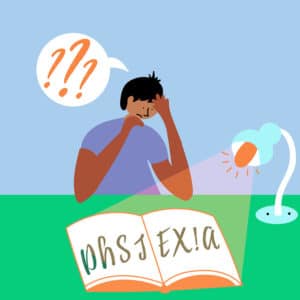 I’ve written about the causes of brain fog, memory loss, chronic fatigue, anxiety, and depression. And how each of these can often be corrected with nootropic supplements.
I’ve written about the causes of brain fog, memory loss, chronic fatigue, anxiety, and depression. And how each of these can often be corrected with nootropic supplements.
But if you’ve tried my suggested nootropic stacks in the past for each of these issues and nothing has worked. It could be a leaky blood-brain barrier.
Because clinical studies show that a leaky blood-brain barrier can be the cause of brain fog, cognitive dysfunction, chronic fatigue, anxiety, and depression.[vii]
And if you’re dealing with a leaky gut, chances are you’re suffering from a leaky blood-brain barrier as well.[viii]
A classic example of this is Celiac disease. If you’re dealing with Celiac disease chances are, you’re also suffering from seizures, headache, cognitive impairment, or other psychiatric disease.[ix]
What causes a leaky brain?
I have touched in the past on ‘leaky gut syndrome’ when writing about Psychobiotics and your gut-brain connection.
Recent research shows that a leaky gut is often associated with a ‘leaky brain’.[x]
Elevated antibodies
 The proteins claudin, occludin, and zona occluden proteins (ZO-1, ZO-2, and ZO-3) are required for the integrity of the tight junctions in your gut barrier lining, and a healthy blood-brain barrier.
The proteins claudin, occludin, and zona occluden proteins (ZO-1, ZO-2, and ZO-3) are required for the integrity of the tight junctions in your gut barrier lining, and a healthy blood-brain barrier.
Problems start with elevated antibodies against occludin and zonulin. Which often leads to leaky brain syndrome.
Lab work can determine if you have elevated levels of antibodies against occludin and zonulin. Blood tests can measure antibodies against these two proteins. Because it it’s left unchecked, tight junctions that seal your gut- and blood-brain barrier are compromised. Resulting in brain and gut permeability.
Inflammation
Research also shows that microRNAs (specifically microRNA-155) are key regulators in inflammation and blood-brain barrier permeability.[xi]
When inflammation goes up, your blood-brain barrier breaks down. And let’s nasty stuff into your brain. Resulting in damaged neurons and a “self-propelling cycle of neuron death.”[xii]
This area of neuroscience has come to be known as the “cytokine model of cognitive function.”[xiii] Elevated proinflammatory cytokines often result in brain inflammation which can lead to anxiety, depression, brain fog, and other autoimmune brain problems.[xiv]
There’s even a “cytokine hypothesis of depression”.[xv]
The bottom-line is inflammation can be the cause of your anxiety, depression, brain fog or some other cognition issue.
If you’ve tried nootropics or meds and have not experienced any relief, it could be inflammation and a leaky blood-brain barrier that is causing your symptoms.
Homocysteine
High homocysteine levels have been linked to a damaged blood-brain barrier.[xvi] Get your homocysteine levels checked the next time you get your labs done.
Blood sugar
High blood sugar is also a risk factor for developing a leaky blood-brain barrier.[xvii] Get your labs done for fasting blood sugar and Hgb A1C to find out if you’re blood sugar levels are high.
Bacterial overgrowth
We’ve touched on the gut-brain axis earlier. And with these two linked, it makes sense that a bacterial imbalance and Candida overgrowth in your gut can result in cognition problems and even depression or anxiety.
When Candida gets out of control, it creates a layer in your intestines. Which suppresses the production of neurotransmitters like serotonin.
Antibiotics are often prescribed to treat Candida overgrowth and other bacterial infections. Often leading to yeast overgrowth.
If you find that Candida is out of control, your first option is to eliminate sugar of all forms including desserts, candy, alcohol, and flour. And cut back on refined grains, beans, bread, pasta, white potatoes, and fermented foods.
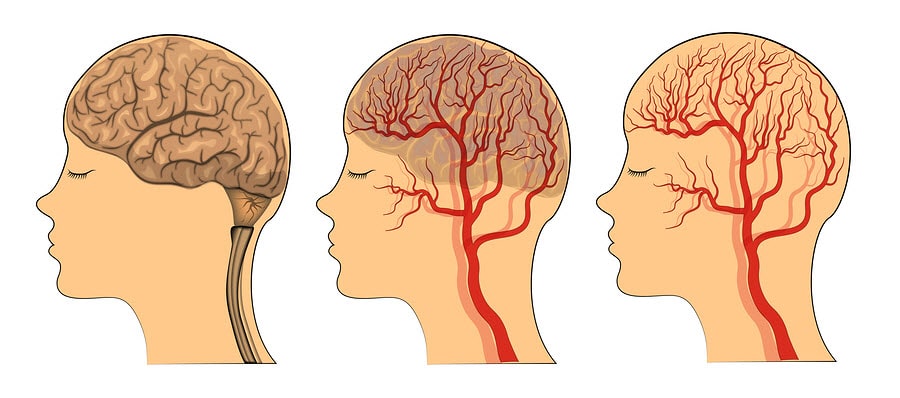
Best nootropics to fix a leaky blood-brain barrier
If you’re dealing with a leaky blood-brain barrier, nootropics can help tame inflammation and restore the integrity of the tight junctions needed for a healthy blood-brain barrier.
The following nootropic supplements have been clinically proven to help tame inflammation and heal a leaky blood-brain barrier.
You can safely use ALL the nootropics I’ve detailed below in a single nootropic stack at the recommended dosages.
NOTE: each nootropic below contains a live link that will take you to my full review of that supplement. Which includes what it is, where it comes from, why we use it, how it works in your brain, clinical studies, dosage recommendations, side effects and forms or type of supplement to buy.
Berberine – 500 mg 3-times per day
Berberine is a bright yellow alkaloid extracted from plants such as Indian Barberry (tree turmeric), Oregon Grape and goldenseal.
Berberine has been used for thousands of years as treatment for bacterial infections, fungus, protozoa, viruses, chlamydia and candida. It helps protect against cholera and E coli. It is used as an anti-diarrheal, and to reduce inflammation.
As a nootropic, Berberine increases cholinergic activity, restores Brain-Derived Neurotrophic Factor (BDNF), and cAMP-response element-binding protein and mRNA expression in your hippocampus.
Berberine also decreases proinflammatory cytokines like interleukin-1β, tumor necrosis factor-α and cyclooxygenase-2 mRNA in the hippocampus.[xviii]
Studies show that Berberine can also reduce the permeability of a leaky blood-brain barrier. Primarily by reducing inflammation.[xix] [xx]
Caffeine – up to 200 – 400 mg per day
Caffeine is an adenosine antagonist which influences acetylcholine, epinephrine (adrenaline), serotonin and boosts the use of dopamine. Providing the stimulant effect, you get when consuming caffeine.[xxi]
Caffeine also provides a protective effect by boosting gene expression of brain-derived neurotrophic factor (BDNF).
Studies show that caffeine blocks increase in IgG and fibrinogen and decreases in tight junction proteins occludin and ZO-1, increases in astrocytes activation and microglia density where IgG leakage was present. Protecting the integrity of the blood-brain barrier.[xxii]
Curcumin extract (95% curcuminoids) 750 mg 3-times per day
Curcumin is the primary active compound in Turmeric. And research shows curcumin boosts neurogenesis. More neurons mean better learning, memory, and mood.[xxiii]
Curcumin is also a potent antioxidant and helps protect your brain from inflammation.
A study at China Medical University found that Curcumin helps prevent disruption of the blood-brain barrier after a stroke.
The researchers found that Curcumin restored the expression of occludin and ZO-1 proteins which in turn restored the barrier function of the blood-brain barrier.[xxiv]
DHA (Omega-3) – 1,000 mg per day
DHA is an Omega-3 fatty acid which makes up much of the gray matter in your brain. Your brain is about 60% fat. And much of that fat is DHA. It’s a critical part of healthy and fluid brain cell membranes.
DHA can boost brain-derived neurotrophic factor (BDNF), regulate calcium oscillations which are involved in neurotransmitter release, boost mitochondrial function, gene activation, oxidative stress, and reduce inflammatory COX-2 enzymes.
Research also shows that DHA can reduce blood-brain barrier damage after a stroke[xxv], after traumatic brain injury[xxvi], and help repair a leaky brain in multiple sclerosis (MS) patients.[xxvii]
L-Glutamine – 2 – 5 grams per day
L-Glutamine is an essential amino acid and precursor for the synthesis of glutamate.
We use L-Glutamine to treat a leaky blood-brain barrier because it helps boost your body’s immune response. It increases antibodies to fight against viruses and harmful bacteria.
L-Glutamine also helps tame inflammatory cytokines which can be harmful to tight junctions needed to keep your blood-brain barrier healthy.
And it detoxes your brain from excess ammonia by converting it into other amino acids, sugars, and urea.
Magnesium – 400 mg before bed
Magnesium deficiency is nearly epidemic in our society because it is sorely lacking in our food supply.[xxviii]
The thing is magnesium is the 4th most abundant mineral in your body. And is a cofactor in more than 600 enzymatic reactions.
You need magnesium to produce adenosine triphosphate (ATP) which is your primary source of energy. Magnesium is required for the synthesis of RNA and DNA[xxix], and regulates ion channels which govern the flow of neurotransmitters.
One animal study showed magnesium reduced blood-brain barrier permeability caused by sepsis.[xxx]
Another study showed magnesium supplementation reduced blood-brain barrier permeability caused by high blood pressure.[xxxi]
And yet another showed magnesium prevented blood-brain barrier breakdown after traumatic brain injury.[xxxii]
Resveratrol – 250 mg per day
Resveratrol is a naturally-derived polyphenol antioxidant used to protect your brain from oxidative stress.
It increases cerebral blood flow, boosts BDNF, protects mitochondria, and prevents the release of toxic glutamate during a stroke.[xxxiii]
One study had 19 Alzheimer’s patients take 1,000 mg of Resveratrol daily for one year. The study found it reduced matrix metalloproteinase-9 (MMP-9) levels in the cerebrospinal fluid by 50%. This MMP-9 decreased when sirtuin1 (SIRT1) is activated.[xxxiv]
High levels of MMP-9 weaken the tight junction of the blood-brain barrier. Conversely, low levels of MMP-9 help maintain a healthy blood-brain barrier.
Another study showed Resveratrol decreased nuclear factor kappaB (NF-κB) and the increased Claudin-5 which strengthened the integrity of tight junctions in the blood-brain barrier.[xxxv]
Vitamin D3 – 4,000 IU’s per day
Vitamin D3, the “sunshine vitamin”, as a nootropic supplement is critical for optimal cognitive health.
It’s an integral part of neurotransmitter synthesis, gene expression, DNA maintenance and repair, and the forms of neuroplasticity needed for memory formation and retrieval.
But Vitamin D deficiency (hypovitaminosis D) is an undeclared worldwide pandemic affecting nearly 50% of the population on this planet.
Research shows that Vitamin D helps maintain blood-brain barrier integrity by blocking the increased production of reactive oxygen species (ROS), and nuclear factor kappa B (NF- kB) activation. And increases levels of the tight junction proteins occludin, claudin-5 and ZO-1.[xxxvi]
And another animal study showed Vitamin D supplementation reduced blood-brain barrier permeability.[xxxvii]
Several of the B-Vitamins have been clinically shown to help prevent a leaky brain and support the blood-brain barrier.
Vitamin B1 (thiamine) – Thiamine is a required cofactor in the synthesis of acetylcholine, is part of the KREBs cycle that produces adenosine triphosphate (ATP), is needed for the synthesis of myelin, and helps maintain optimal levels of glutamate and GABA.
Thiamine deficiency can be caused by alcoholism, Alzheimer’s Disease, anemia, athletes who reduce food intake, cancer, clogged arteries, Crohn’s disease, diabetes, diarrhea, gastric bypass surgery, consuming large amounts of coffee and tea, and kidney disease. And even a poor diet.
Severe thiamine deficiency (Wernicke encephalopathy) causes damage to the integrity of the blood-brain barrier. Which can quickly be reversed with one week of thiamine supplementation. [xxxviii]
Vitamins B6, B9 & B12 – work together to keep homocysteine levels in check.
Homocysteine is an inflammatory compound and when levels are excessively high can break the integrity of the blood-brain barrier.
Studies show that supplementing with B6, B9 & B12 will bring homocysteine levels down to normal levels and restore the integrity of the blood-brain barrier.[xxxix]
Leaky Brain Summary
We’ve defined what the blood-brain barrier is and why it’s so critical to your overall cognitive health.
We looked at the causes of a leaky blood-brain barrier. And how to fix it.
We also discovered that if you’ve got a leaky gut, chances are your brain is leaky too. If you fix one, you’ll make great strides in fixing the other.
All the nootropics I’ve detailed above can be used daily as a single nootropic stack if you’re dealing with a leaky brain. Just follow the dosage recommendations and you should be fine.
If this is your first time using any of the above supplements, start with one at a time. Use it for a day or two. And if you don’t experience any problems. Add the next on the list.
Heal your leaky brain naturally and watch the symptoms of brain fog, memory loss, chronic fatigue, anxiety, and depression get less and less over time.

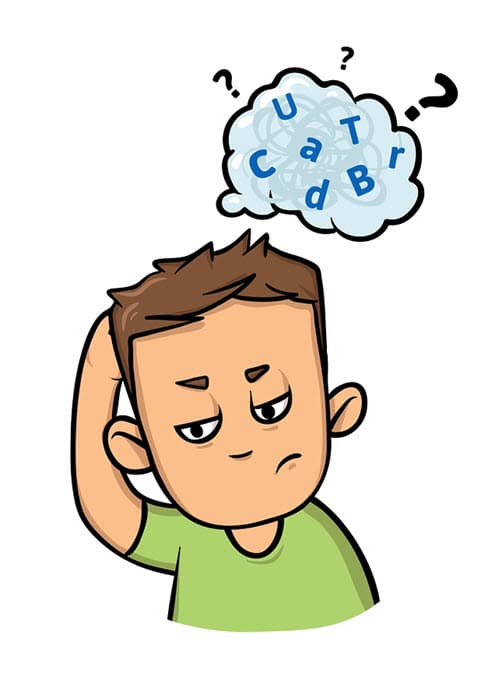






Join The Discussion - 42 comments
Teja
April 21, 2023
Hi,
Great blog btw! I have never seen anything like this.
I have a question.
My name is Teja, age 25. I’ve been severely affected by post covid symptoms(also i took vaccine when i got covid).
My symptoms include dry eyes, sunlight sensitivity, chest pain, unable to breathe properly, constipation, tinnitus, less saliva production, scaling on moustache and eyebrows, severe fatigue since 2yrs.
All my reports were normal ANA profile, SSA, SSB.
[edited for length]
Doing the diet since 6months, but only noticed reduction in chest pain. Do you recommend any supplements which won’t disturb my ketosis or even increasing dosage of above mentioned supps.
Also would you recommend me to try a neuroplasticity program like DNRS.
Thank you.
David Tomen
April 21, 2023
Teja, I do not do nootropic stack reviews in the comments section. But I have consulted with many people dealing with Long-COVID. I am happy to do a consultation with you when you are ready.
But until then I suggest you add plain niacin daily. You can use a non-flush form like niacinamide which will increase your NAD+ levels. Also use Vitamin C 500 mg 3-times per day. And try Quercetin 500 mg 3-times per day for 3 – 4 months.
Kim B
May 8, 2022
Great article. Can you clarify the use of caffeine? With a leaky BBB, one can be hugely sensitive even to small amounts of decaf coffee or teas. (Similar to glutamates, and even the wrong b-vitamins if they have MTHFR gene mutations). Can you add some recommendations for these situations?
David Tomen
May 9, 2022
Kim you have plenty of other options to heal a leaky brain. Scroll up and take a look at Berberine, DHA, Curcumin, magnesium, and one that is not on this list by you can find my review for: Fisetin.
Bridget
March 6, 2022
So many different types of Magnesium. Is there a specific kind that you recommend?
David Tomen
March 7, 2022
Bridget, as long as you are using a ‘chelated’ form of magnesium your body will recognize it as the same form that comes from food. So your best options are Magnesium Bisglycinate, Magnesium L-Threonate, or Magnesium Taurate.
Brendan
February 3, 2022
Hi David,
It’s a wonderful article that helped resolve many of my issues. My symptoms such as brain fog/memory issues/dry eyes happen whenever I take small amounts of sugar. After trying the above out by taking Tumeric, the brain fog has largely been resolved. But my eyes are still facing dryness with sugar intake.
I’m suspecting it is something similar? But I would like to hear your expert opinion on this. A quick online search shows that there is something similar for the eyes the blood-ocular barrier. Are there any nootropics that can help with this condition?
Thank you so much! From Singapore
Brendan
David Tomen
February 3, 2022
Brendan, this stuff works!
By far the best Vision supplement I ever tried and still use is Performance Lab-Vision: https://bit.ly/2JNb70o. If any natural supplement will help it will be that one.
Remy
September 28, 2021
Hi David,
I saw L-glutamine on the list. Isn’t this an excitatory Neurotransmitter that may produce more glutamate in the brain and make neuroinflammation worse? Personally, I’ve developed dysautonomia from Covid and have been trying to decrease neuroinflammation while staying away from things that seem to be vasodilatory and lower BP (symptoms worsen dramatically when this happens). That’s why I tend to stay away from things like curcumin because it can activate NO in the brain.
Any other suggestions on how to address a viral Leaky Brain?
David Tomen
September 28, 2021
Remy, L-glutamine is a precursor to the excitatory neurotransmitter glutamate and aspartate. And the inhibitory neurotransmitter GABA. Glutamine is not excitatory on its own. But you absolutely need it because it is the most abundant amino acid in your body.
Without enough glutamine the glutamine/glutamate/GABA cycle gets out of whack and really bad things can happen. Further explained in this review: https://nootropicsexpert.com/l-glutamine/.
But you can also try Berberine (https://nootropicsexpert.com/berberine/), Vitamin D, and Quercetin (https://nootropicsexpert.com/quercetin/).
John Paul
September 11, 2021
Hi David,
Thanks so much for this wonderful article. I’ve been suffering from a weird chronic fatigue syndrome and suspecting now after reading above that I might have a leaky brain issue.
Aside from the CFS, here are some symptoms I experience from all these food and supplements I used to take/eat but now I experience the following ( these are taken and tested first thing in the morning)
1. Caffeine (insomnia)
2. CoQ10 (insomnia)
3. Coconut Oil (Insomnia)
4. Alpha GPC – (my involuntary breathing stops
5. L-Arginine – Confusion/depression
6. Acetylcholine – Insomnia/Extreme sleep disturbance
Now I have to eat 2x egg yolks every morning, lunch and afternoon or I will experience a headache concentraed on the top of the head. I have to skip eggs for dinner as it causes sleep disturbances.
Does this look like a leaky brain issue?
If not, would you be able to help assit me with s 1 on 1 consultation? These chronic fatigue and brain issue has been troubling my life since January 2020.
Thanks so much for your kind support!
David Tomen
September 11, 2021
John Paul, did you begin experiencing this starting at a specific date? Like Jan. 2020?
John Paul
September 12, 2021
Thanks so much David! Yes the CFS started by January 2020 after I acquired an H1N1 virus from a plane ride. Then I had constipation issues mid 2020 with too much fiber intake, which led to my doc stopping ally supplements/nootropics (lion’s mane, huperzine a, coq10, vit d, b complex, magnesium Glycinate). A few weeks After this event of stopping my supps, I experienced severe anxiety/panic attack. Tried taking them again, but the huperzine and coq10 gave me troubles already. I tried Alpha-gpc which I used to take now was also an issue. Only thing which helps with the panic attacks is daily Lion’s mane.
Then by January 2021, coconut oil which I’ve been taking whole day since 2014, now gives me insomnia. It was May of this year, where I started the 3 items below (sorry for the typo with the l-carnitine and PC, battling with brain fog and recall)
Alpha GPC – my involuntary breathing stops
L-Carnitine– Confusion/depression
Phosphatidylcholine – Insomnia/Extreme sleep disturbance.
Now I am fighting the headaches with 2x egg yolks every morning, lunch and afternoon. The fatigue though is the mysterious one I am not able to fight with. Coq10 used to help with energy but now it gives me insomnia. I have sleep issues, i have to take glycine + magnesium + l-theanine + gaba to help.
My sensitivy with anything I take seems to point out to leaky brain which I was only able to consider after reading your super helpful article.
David Tomen
September 13, 2021
John Paul, if this all started as a result of contracting the H1N1 virus then I’m not sure I’m the right person to assist you. This is way above my area of expertise. If your doctor can’t help then I suggest searching for a naturopath or alternative health practitioner near you.
PaulJohn
September 14, 2021
Hi David,
I find it that if I supplement with Alpha-GPC or PC for a day, they give me full energy. Only thing is the side effects after are horrible (these started a few months ago)
We can omitt addressing the fatigue if it’s possible, I have a functional medicine practioner advising me also for the fatigue.
I just want to address the neurological side to optimize my brain (brain fog, memory, sleep etc). Why I cannot take Alpha-gpc, L-carnitine, or PC and what can I do to fix this so I don’t have to eat 6 egg yolks throughout the day to avoid the headaches.
Why suddenly coconut oil and coq10 gives me insomnia. I wanted to address what else can I do to to support my cognitive functionalities.
Happy to hear your thoughts, would book a session with you right away in case you might be to take me as a client.
Thanks so much for your time reading this.
David Tomen
September 15, 2021
Hi Paul John, there is evidence since the 1918 Spanish flue pandemic that while the H1N1 flu strain couldn’t cross the blood-brain barrier, it still caused central nervous system immune cells called microglia to flow into the substantia nigra and the hippocampus, causing inflammation and cell death in the area. (https://www.ncbi.nlm.nih.gov/labs/pmc/articles/PMC4393251/)
It appears that depending on the virus some cross the BBB and others start the destructive process in the gut and end up causing brain damage via the vagus nerve.
Once this damage happens it is a challenge to fix it. There are supplements such as Inositol which can increase dopamine receptor density. NAC helps revive dopamine receptors that are dysfunctional. And Aniracetam boosts the effectiveness of dopamine D2 and D3 receptors. Those are the nootropics that come to mind at the moment.
I suggest sharing this article from The Scientist with your functional medicine doc and see if she has any ideas: https://www.the-scientist.com/features/can-the-flu-and-other-viruses-cause-neurodegeneration–65498. Pretty sobering stuff considering flu season is right around the corner. And who knows how this applies to the COVID-19 virus.
Stephen Cozzolino
July 20, 2021
Hi David, your site is really terrific; I often use it to explore additional topics as I investigate treatments for CADASIL. I wanted to let you know this article is not showing the reference section. I had wanted to create a quote in a paper that I’m writing regarding no brain cell being further than 25 μm but the reference to [v] was not working. Thank you!
David Tomen
July 21, 2021
Stephen, what browser are you using? Because if you scroll up to the bottom of this article you’ll find “REFERENCES”. Click that and the accordion drops down showing the references. I just tested it in Chrome and it works on this end.
Stephen Cozzolino
July 23, 2021
Yes, I’m using Chrome as well. It temporarily couldn’t find the reference to [V] but then it worked. Don’t waste anytime on it. Thank you for the response.
Lisa
June 16, 2021
Hi David,
I have a tendency to get pressure in my head when I take supplements. Mostly stimulating ones like b6 or folate.
I recently tried B1 in the form of mononitrate to see if that would help but in stead it made it worse. Possibly blood pressure related? I found your article looking for answers maybe leaky brain, I don’t think so tho. However, going back to the B1, will you recommend one that will not cause ear/head pressure or low blood pressure?
David Tomen
June 17, 2021
Lisa, the best alternative to thiamine is Sulbutiamine (https://nootropicsexpert.com/sulbutiamine/) which is one of my favorite supplements. And one I’ve been using for years.
Lisa
June 17, 2021
Hi David,
will Sulbutiamine cause my blood pressure to go down? Which brand is safe?
David Tomen
June 18, 2021
Lisa, Sulbutiamine is not likely to affect blood pressure.
I use the one by Double Wood Supplements and am happy with it: https://bit.ly/3jYs447